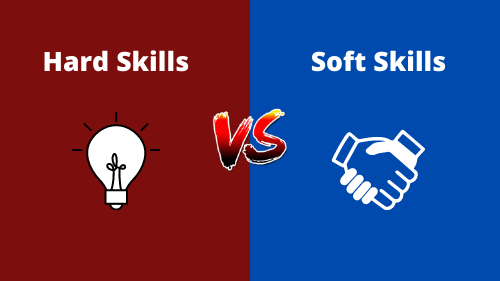Entrepreneurship is a highly demanding yet rewarding journey, especially for startups. To thrive in this dynamic landscape, aspiring entrepreneurs need a diverse set of skills. These skills can be broadly categorized into two groups: hard skills and soft skills. The fusion of hard and soft skills empowers individuals to innovate, lead, and create successful ventures. Startup entrepreneurs are encouraged to learn the rules of the game.
Understanding Soft and Hard Skills
Hard Skills: These are specific, teachable abilities that are often quantifiable and technical in nature. They are typically acquired through education, training, or experience. Hard skills provide the foundation for executing specific tasks and functions effectively.
Soft Skills: Soft skills, on the other hand, are less tangible but equally, if not more, vital. They encompass interpersonal, emotional, and social intelligence. Soft skills enable individuals to navigate complex relationships, communicate effectively, and adapt to various situations and challenges.
Why Soft and Hard Skills Matter for Startups:
Entrepreneurship is complex work that demands a balanced blend of soft and hard skills. The following reasons shed light on why soft and hard skills matter.
- Balance and Versatility:
Soft skills enhance adaptability and resilience, enabling entrepreneurs to pivot in response to market changes. Hard skills provide the technical proficiency required for product development, financial management, and other critical tasks. - Relationship Building:
Soft skills like communication, empathy, and networking facilitate relationship-building with customers, investors, and team members. These relationships are often the cornerstone of a successful venture. - Problem Solving:
Entrepreneurs frequently encounter complex challenges. Soft skills such as critical thinking and creativity complement hard skills in finding innovative solutions. - Leadership and Motivation:
Entrepreneurship often involves leading a team. Strong leadership skills and the ability to motivate and inspire others are hallmarks of a successful entrepreneur.
Starting a successful entrepreneurial venture requires a combination of hard and soft skills. In general, these skills are essential for navigating the challenges of entrepreneurship and building a thriving business. Here's a breakdown of both types of skills:
Hard Skills for Entrepreneur Start-up:
- Industry Knowledge:
A basic understanding of the industry, market trends, competitors, and customer preferences, is crucial. - Financial Literacy:
Proficiency in financial management, budgeting, forecasting, and understanding financial statements. - Business Planning:
The ability to create a comprehensive business plan that outlines goals, strategies, and financial projections is vital. - Marketing and Sales:
Knowledge of marketing strategies, digital marketing, sales techniques, and customer acquisition is necessary. - Product or Service Expertise:
It is essential to have a deep understanding of the product or service you're offering, including its features, benefits, and how it solves customer problems. - Technology Skills:
Being conversant with technology, relevant software and tools can streamline business operations and improve efficiency. - Legal and Regulatory Knowledge:
Awareness of business laws, regulations, contracts, and intellectual property rights is essential for compliance and risk management.
Soft Skills for Entrepreneur Start-up:
- Resilience: The ability to bounce back from setbacks and adapt to changing circumstances is crucial in the unpredictable world of entrepreneurship.
- Good Decision-Making: Effective decision-making, often under pressure, is vital for guiding your business in the right direction.
- Leadership: As an entrepreneur, you'll need to lead and motivate your team, even during challenging times.
- Communication: Clear and effective communication with team members, partners, customers, and investors is key to building relationships and trust.
- Problem-Solving: Entrepreneurs encounter numerous challenges. Strong problem-solving skills will help you find creative solutions.
- Networking: Building a professional network can open doors to opportunities, partnerships, and valuable advice.
- Time Management: Efficiently managing your time and prioritizing tasks is essential when resources are limited.
- Adaptability: Being open to change and able to pivot your business strategy when necessary is critical for long-term success.
- Negotiation: Negotiation skills come into play when dealing with suppliers, investors, and other stakeholders.
- Empathy: Understanding and empathizing with your customers' needs and concerns can lead to better product development and customer relationships.
Successful entrepreneurs often work on both their hard and soft skills continually as their businesses grow and evolve. Additionally, seeking mentorship and learning from experienced entrepreneurs can be valuable in honing these skills as start-up entrepreneurs. Failure to embrace the right skills leads to stagnation in business.






